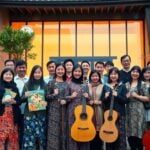Deadline: 3 April 2025
The Journalismfund Europe is seeking applications for its Microgrants for Small Newsrooms initiative to empower 50 local independent media outlets. The goal is to foster resilience and viability through capacity-building activities, design-learning innovation and a repository of case studies and best practices.
It aims to encourage a culture of innovation at the local level through introducing media personnel to a design-learning approach focused on audience research, prototyping, and testing new products and services.
By the end of the project, it will have accumulated a vast set of case studies and best practices that can then be shared with other newsrooms across Europe, in countries suffering from a lack of plurality and beyond. All project outputs will be freely accessible, fostering ongoing professional development beyond the programme’s duration.
Objectives
- This programme will:
- Allow small news outlets in countries where media plurality is under threat to implement new tactics and skills to build resilience and viability;
- Encourage a culture of innovation at the local level through introducing media personnel to a design-learning approach focused on audience research, prototyping, and testing new products and services;
- Accumulate a vast set of case studies and best practices that can then be shared with other newsrooms across Europe, in countries suffering from a lack of plurality and beyond.
Mentorship
- Each grantee will be assigned a mentor for the duration of the contract.
- Mentors are selected based on the need for competencies in a specific skill.
- Grantees are required to accept a mentor and communicate regularly with the mentor.
Funding Information
- The total grant budget is €250,000 to distribute over two application rounds (€125,000 per call)
- The maximum amount per newsroom is €5,000.
Eligible Activities
- Activities should focus on a specific area of business development that has the potential to expand audiences and make the particular media outlet more sustainable in the long run.
- Grants, for example, could allow newsrooms to commission in-depth audience research for the first time, create a new editorial offering for a new set of users, redesign a website to display trust-building information about the editorial process, or experiment with new methods for covering particularly polarizing topics. That list is not exhaustive, and they welcome many other areas of development. The emphasis should be on building a prototype of something new that can be improved, not necessarily a fully finished product.
Eligible Costs
- Eligible costs for funding are personnel, operating costs and depreciation on investments that meet the following cumulative conditions:
- directly attributable to the project
- arise during the project period and after the signing of the grant agreement
- necessary for carrying out the project
- effectively incurred by the grant beneficiary, identified and verifiable, in particular recorded in the grantee’s accounts in accordance with the accounting standards applicable in the country where the beneficiary is established and with the grantee’s usual cost accounting practices
- not funded by other donors or support programmes
- they must be reasonable, justified and must comply with the principle of sound financial management
- they must comply with the applicable national law on taxes, labor and social security
Ineligible Costs
- The following costs are not eligible:
- personnel and operating costs not directly attributable to the project
- investment goods (such as IT equipment, mobile phones, etc.)
- internal rental costs (rental to oneself – as owner – of premises or other infrastructure)
- overhead costs and office costs
- meal costs, food and beverages, per diems
- in-kind contributions by third parties
- interests, debt service charges, currency exchange losses
- recoverable VAT
Eligibility Criteria
- This grant programme will be open to small and medium-sized, local, and independent media outlets (legal entities) in EU member states and participating countries in the Creative Europe Programme (Iceland, Norway, Liechtenstein, Albania, Bosnia and Herzegovina, Georgia, Kosovo, Montenegro, North Macedonia, Serbia, Ukraine, Armenia, and Tunisia), with a particular emphasis on countries with a medium or high-risk rating according to the Media Pluralism Monitor.
- The media outlets must be legal entities officially incorporated at least one year before the application deadline of the grant call.
- Media outlets should already have made journalistic content available to a general public at least one year before the application deadline of the grant call.
- The project should be clearly defined in time (the maximum term of the project may not exceed 2 months).
- The grant request does not intend to finance the regular operations, but to support well-defined innovative projects that go beyond regular operation. This is an opportunity to develop prototypes of new products or services.
- The legal entities should have a turnover of less than 1.5M EUR and shouldn’t be part of a group or consortium with a consolidated turnover that exceeds an amount of 3M EUR.
For more information, visit Journalismfund Europe.


























